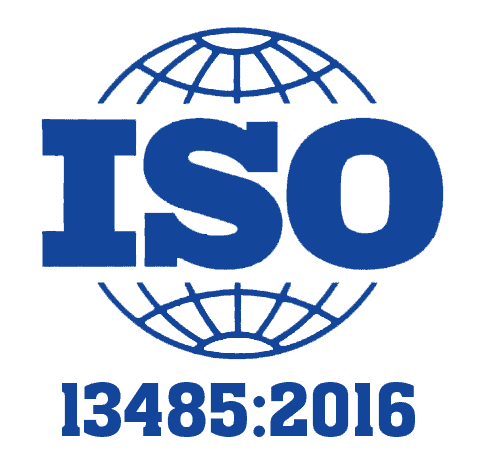
ISO 13485
ISO 13485 is an international standard for quality management systems for medical devices. This standard was developed to ensure high quality and safety in all processes, including the design, production, installation, maintenance, and supply chain management of medical devices. ISO 13485 is used to ensure that organizations in the medical device sector guarantee the quality and safety of their products and comply with legal requirements.
ISO 13485 specifies how medical device manufacturers, suppliers, and other stakeholders should establish and maintain quality management systems. This standard is based on the general principles of ISO 9001 but includes additional provisions to meet the specific requirements of the medical device sector.
Key Objectives of ISO 13485
Ensure the Safety of Medical Devices:
Aims to protect the health of users by increasing quality and safety in the design and production processes of medical devices.
Ensure Regulatory Compliance:
Guarantees that medical devices comply with national and international regulations, directives, and certification requirements.
Continually Improve Quality:
Provides a systematic approach to continually improve quality in the production and use processes of medical devices.
Increase Customer Satisfaction:
To meet and exceed customer expectations by improving product and service quality.
Key Requirements of ISO 13485
Quality Management System (QMS)
ISO 13485 requires the establishment, documentation, and continual improvement of quality management systems in the design and production processes of medical devices.
Risk Management
Potential risks must be analyzed and managed in processes from the design stage to the production stage of medical devices. This is a critical element in ensuring the safety of the devices.
Documentation and Records
All quality management processes must be documented and recorded. These records are necessary to monitor and verify the quality of medical devices.
Design and Development
The design and development processes of medical devices must be carried out in accordance with specific quality standards and regulations.
Production and Service Provision
Production processes must comply with specific quality requirements, and each stage must be subject to strict controls. Additionally, processes must be defined for the maintenance, repair, and other services of the devices.
Monitoring and Measurement
The performance of medical devices must be monitored, measured, and audited. User feedback and post-market surveillance must be included in quality control processes.
Training and Competence
Employees must be trained in the quality management system and the design, production, and management of medical devices, and their competence must be regularly assessed.
Supply Chain Management
Suppliers of materials and components used in the production of medical devices must also comply with quality management system standards.
Traceability
The movements of medical devices at every stage, including production, distribution, and use processes, must be traceable. This plays a critical role in emergencies such as device recalls.


Benefits of ISO 13485
Enhances Product Safety:
Guarantees the safety and quality of medical devices, thus providing safe products for healthcare professionals and patients.
Ensures Regulatory Compliance:
Ensures compliance with national and international regulations, enabling medical device manufacturers to meet legal requirements.
Provides Competitive Advantage:
Having ISO 13485 certification is an important advantage for competing with other companies in the sector. It also increases customer confidence.
Facilitates Market Access:
The certification facilitates access and acceptance processes for companies operating in global markets.
Continual Improvement:
Medical device manufacturers continually improve their processes through the quality management system, reduce errors, and increase efficiency.
Risk Reduction:
Identifying and managing risks in the design, production, and use phases of medical devices prevents potential hazards and costly errors.
Customer Satisfaction:
Increasing product quality and safety helps ensure customer satisfaction.
Who is ISO 13485 Suitable For?
Medical Device Manufacturers: Suitable for companies that design, manufacture, or sell medical devices.
Medical Device Suppliers and Distributors: Companies that manufacture or supply components of medical devices.
Medical Device Maintenance and Repair Companies: Organizations that provide services related to the maintenance and repair of medical devices.
Laboratories: Suitable for organizations that test and calibrate medical devices.
Contact Us to Meet Your ISO Certification Needs and Increase Your Efficiency.
We offer affordable and effective solutions tailored to your needs.
The information presented on this website does not constitute legal advice and is intended for informational purposes only. KompassEurope.com.tr assumes no responsibility for any errors or omissions in the information contained on this website. Any decisions made or actions taken by the reader based on this information are solely at the reader's own risk, and KompassEurope.com.tr shall not be held liable for any legal consequences arising from such decisions or actions. Readers are strongly advised to seek professional legal counsel regarding their specific circumstances and concerns.
© 2025 Kompass Europe. All rights reserved. The contents of this website belong to Kompass Europe and are protected by copyright laws. Copying, publishing, distributing or any commercial use of the information on the website is possible only with written permission. By using this site, you agree to our Terms of Use and Privacy Policy.
